Sunday Feb 15, 2026
Sunday Feb 15, 2026
Saturday, 12 December 2015 00:00 - - {{hitsCtrl.values.hits}}
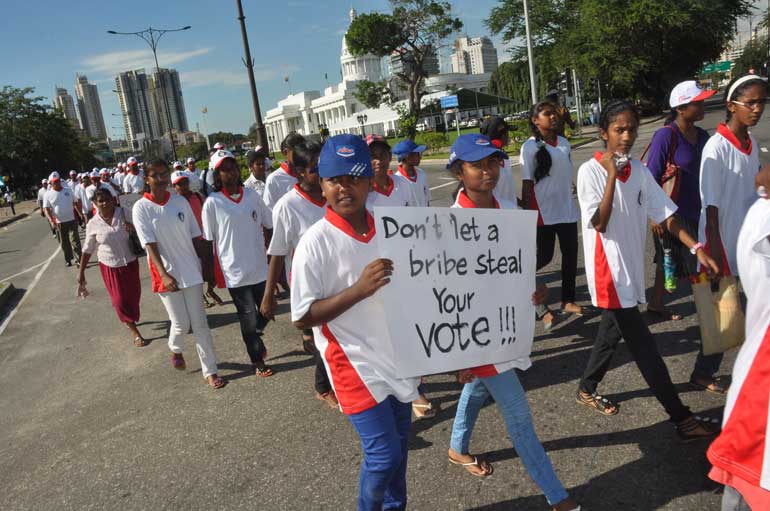
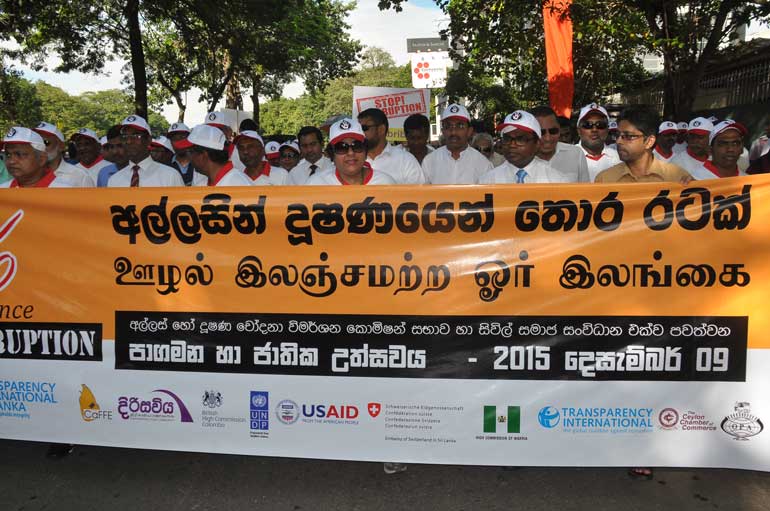
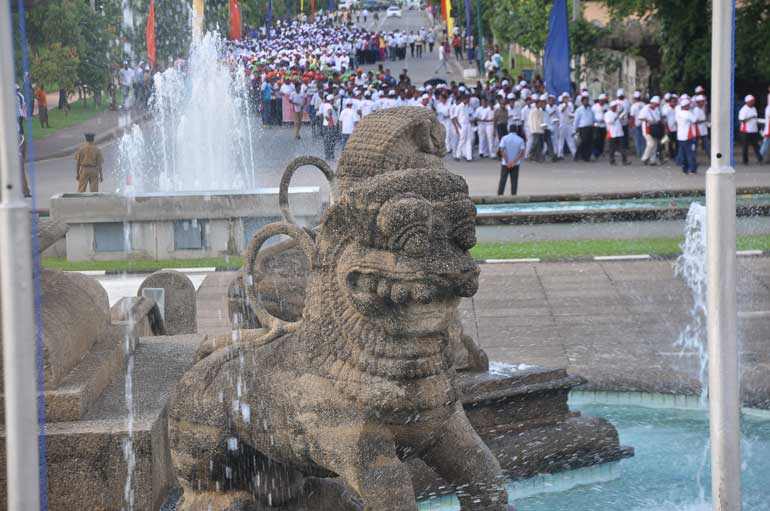
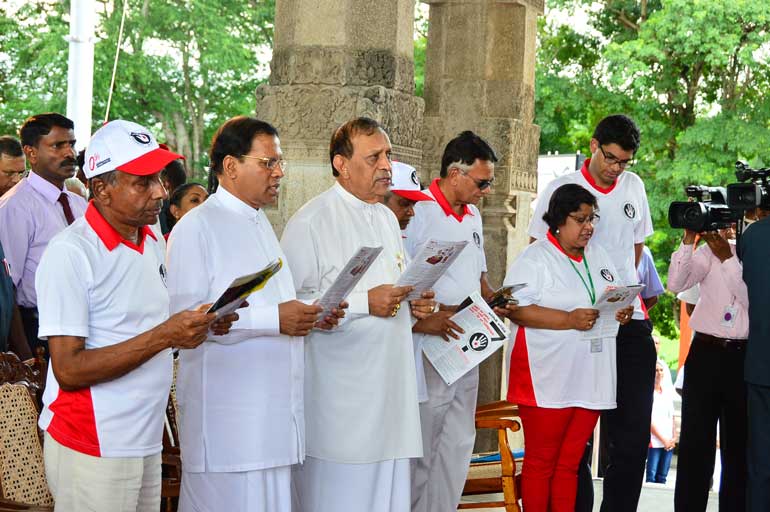
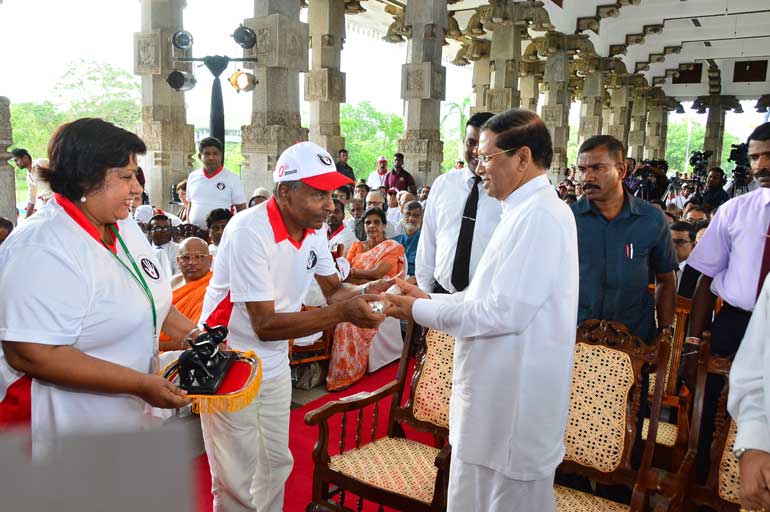
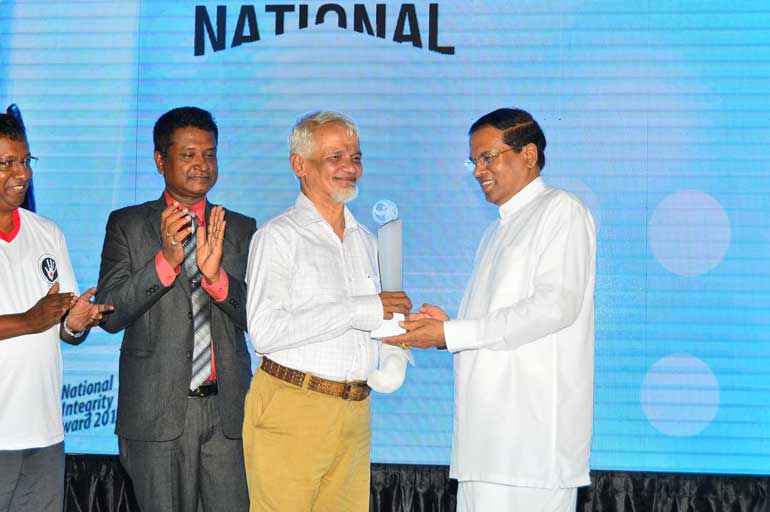
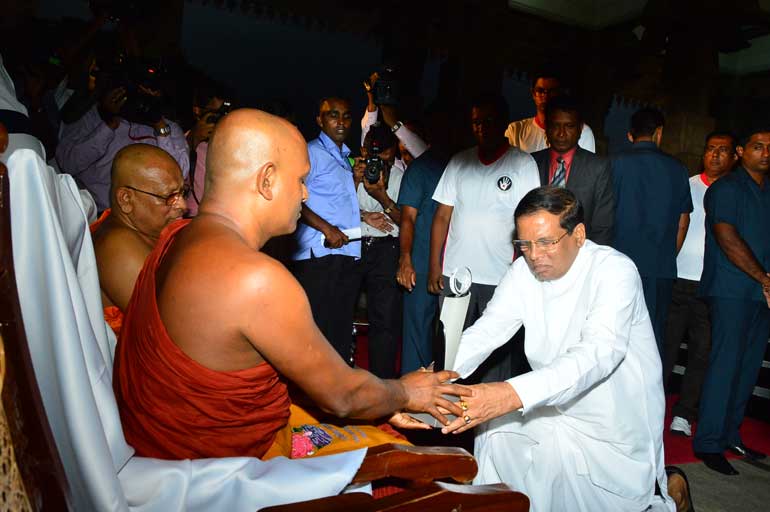
This year, the Anti-Corruption Day – 9 December – got a shot in the arm. All these years it was a ‘one man show’ when the day’s commemorative activities were restricted to the program organised by Transparency International Sri Lanka (TISL). The highlight of the day was the presentation of the National Integrity Award to a person/organisation recognising the efforts towards eradicating corruption and establishing good governance. Cartoon, essay and slogan competitions were also organised by TISL to create awareness of the need to curb bribery, corruption and wastage. Often an activist from India was invited to give the keynote address.
Things had to be different this year with not one but two elections being fought with corruption as the main slogan against the previous regime which lost both elections. From the day the elections were over there has been a public outcry to punish the culprits and the public is becoming anxious over the delay in taking action against them.
Judging from the active role played by the Commission to Investigate Allegations of Bribery or Corruption (CIABOC) this year, joining TISL in a joint effort to conduct a meaningful program, the commission seems to mean business. The Director General Dilrukshi Dias Wickrmasinghe was seen getting onto the streets and pasting anti-corruption stickers. She didn’t mind sitting alongside TISL staff members at a media conference and discussing the activities planned for the Anti-Corruption Day. She didn’t feel shy to wear an anti-corruption t-shirt and cap and march in the ‘Walk Against Corruption’ alongside human rights activist/lawyer J. C. Weliamuna.
Not so long ago, TISL was a ‘forbidden word’ in the vocabulary in government circles. Bureaucrats were scared to talk to TISL staffers. Media was hesitant to publish TISL news releases because they were invariably about corruption in the public sector. TISL training programs were disrupted, staff members were threatened, participants were forced to move out, trainers were intimidated and hotel managements were ordered not to rent out premises. I was part of the TISL team at the time. Amidst all threats, TISL carried on. Patience pays, they say. TISL is a good example.
As for the International Anti-Corruption Day, it dates back to 31 October 2003, when the United Nations General Assembly adopted the United Nations Convention against Corruption.
The Assembly designated 9 December as International Anti-Corruption Day, to raise awareness of corruption and of the role of the convention in combating and preventing it. The convention came into force in December 2005.
‘Break the Corruption Chain’ is the theme of this year’s Anti-Corruption Day.
In a message, Secretary General Ban Ki-moon said: “The new 2030 agenda for sustainable development, our plan to end poverty and ensure lives of dignity for all, recognises the need to fight corruption in all its aspects and calls for significant reductions in illicit financial flows as well as for the recovery of stolen assets. ”
It was ten years earlier that Transparency International (TI) was set up by retired World Bank official Peter Eigen after seeling corruption’s impact when he was working in East Africa. At that time, many international agencies were resigned to the fact that corruption would sap funding from many development projects around the world.
With nine allies, Peter Eigen set up TI with a Secretariat in Berlin. Today it is the leading global network against corruption with over 100 national chapters throughout the world. TISL was started in 2002.
TI sums up their role thus: From villages in rural India to the corridors of power in Brussels, Transparency International gives voice to the victims and witnesses of corruption. We work together with governments, businesses and citizens to stop the abuse of power, bribery and secret deals.
As a global movement with one vision, we want a world free of corruption. Through chapters in more than 100 countries and an international secretariat in Berlin, we are leading the fight against corruption to turn this vision into reality.
Pix by – Shehan Gunasekara